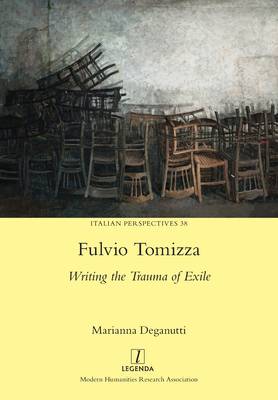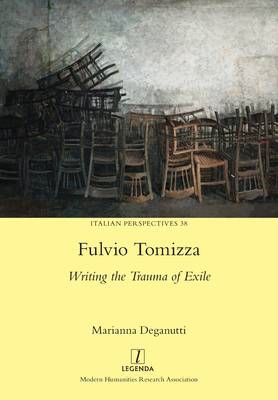
- Afhalen na 1 uur in een winkel met voorraad
- Gratis thuislevering in België vanaf € 30
- Ruim aanbod met 7 miljoen producten
- Afhalen na 1 uur in een winkel met voorraad
- Gratis thuislevering in België vanaf € 30
- Ruim aanbod met 7 miljoen producten
Omschrijving
In what language is it possible to elaborate the trauma of exile? By dealing with the diaspora from Istria, a borderland located at the intersection of the Italian and the Croato-Slovene civilizations, Fulvio Tomizza (1935-1999), an outstanding and yet still relatively unknown author of the Italian Novecento, questioned exile in depth. This exile, which took place after the post-war redefinition of the Italo-Yugoslav border, corresponds to a trauma, that can be better analysed through the language used by Tomizza, in particular through his multilingualism and self-translation. In this work, Deganutti suggests that only the Italian language the author chooses to write his novels - which corresponds both to a native and a translated tongue - allows him to cope with the trauma of exile, or at least with what could be told about it.
Marianna Deganutti is a Research Associate at the Department of Politics, Languages & International Studies - University of Bath.
Specificaties
Betrokkenen
- Auteur(s):
- Uitgeverij:
Inhoud
- Aantal bladzijden:
- 194
- Taal:
- Engels
- Reeks:
- Reeksnummer:
- nr. 38
Eigenschappen
- Productcode (EAN):
- 9781781885949
- Verschijningsdatum:
- 28/09/2020
- Uitvoering:
- Paperback
- Formaat:
- Trade paperback (VS)
- Afmetingen:
- 170 mm x 244 mm
- Gewicht:
- 317 g

Alleen bij Standaard Boekhandel
Beoordelingen
We publiceren alleen reviews die voldoen aan de voorwaarden voor reviews. Bekijk onze voorwaarden voor reviews.











